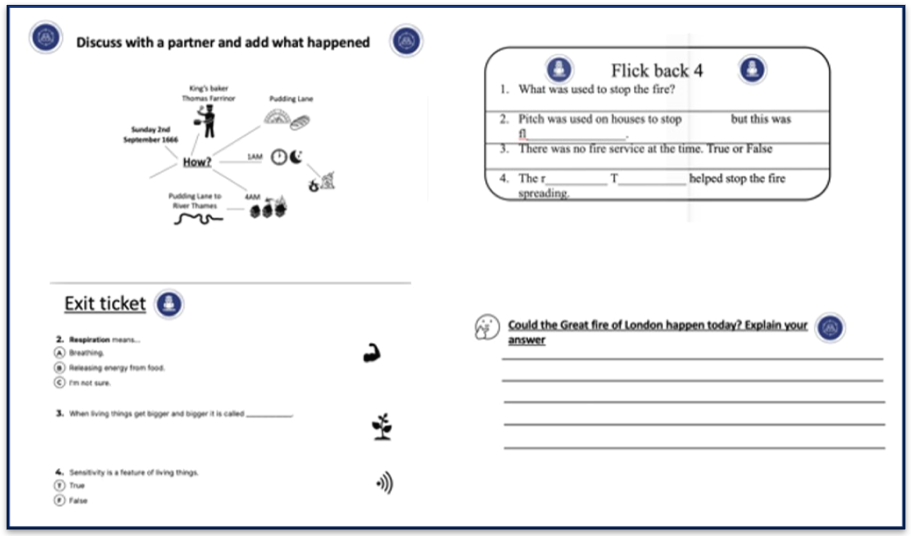History
Historical learning begins in the Early Years, as children begin to develop a sense of chronology, being able to talk about past and present events in their own lives and in the lives of family members, alongside significant people, events and stories from the past.
As children move into Key Stage 1, they begin to develop an awareness of changes beyond and within living memory. The study of ‘Now and Then,’ and ‘Transport through Time,’ allow children to make comparisons and identify significance. Historical walks in our local area, visiting sites such as Hall’ith’Wood Museum, provide opportunities for children to look at similarities and differences and change and continuity in our local area.
In Key Stage 1, the broad range of significant people studied are selected to represent and promote diversity and equality within our school.
As children move into Key Stage 2, they develop an awareness of British, World and local History through a variety of concepts. Studies of ancient civilisations such as Egypt, are linked with local history. For example, the life of Annie Barlow, Bolton’s very own ‘Indiana Jones.’ The significance of events, such as World War 1 and 2, allow children to apply knowledge in a meaningful context. For example, the study of Muslim soldiers during World War 1. Linking to our local context, children study the migration of people to our country and our locality, discovering the rich heritage of our town, Bolton. A key aspect of our local area studies is Bolton’s impact on civilisation during the time of the Industrial Revolution.
Visits to places such as Bolton Museum, Manchester Museum, the Roman Museum, Ribchester, and MOSI are some examples of how we develop children’s understanding of life in Britain in different eras.
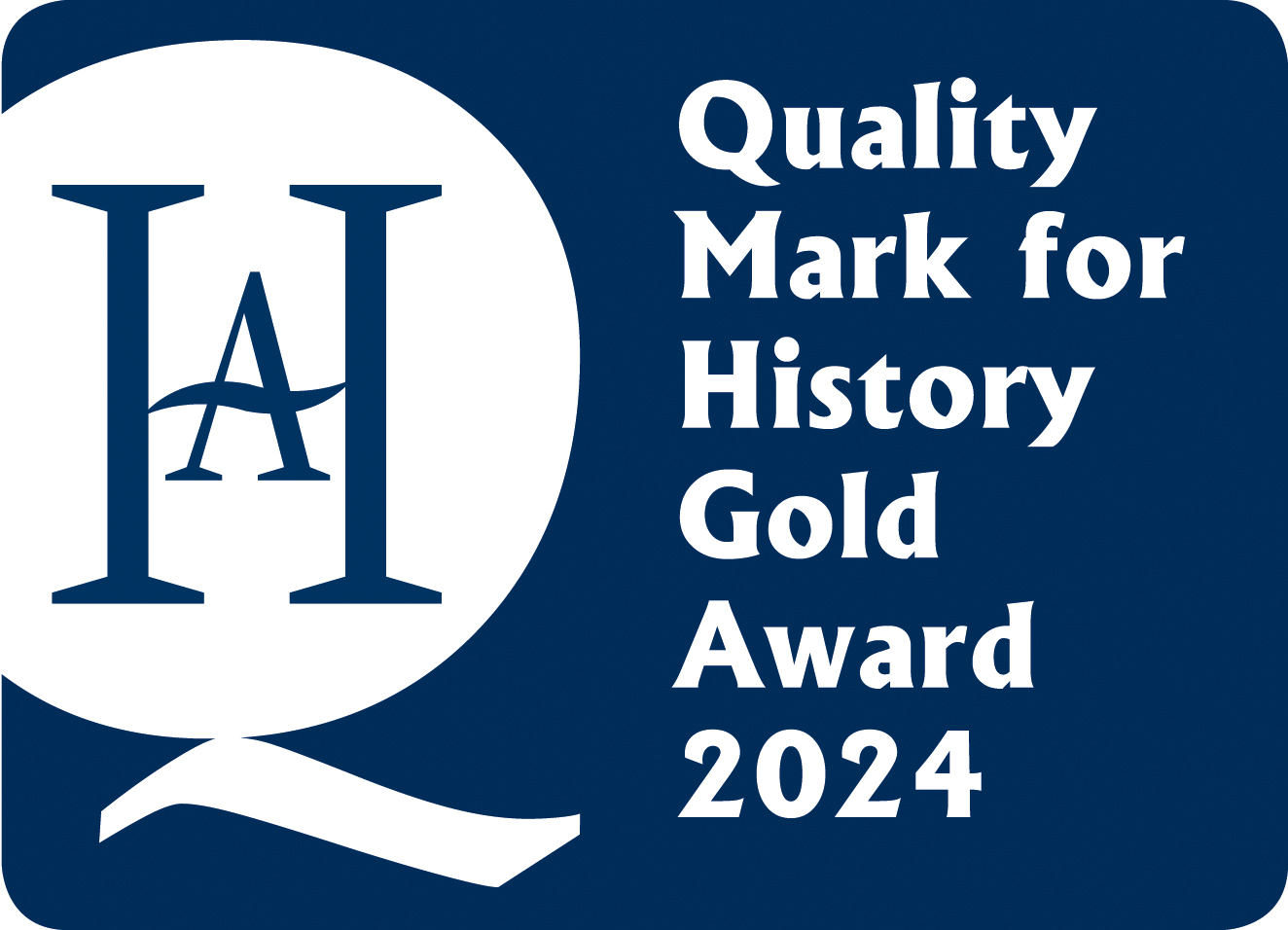
We have been awarded the Historical Association's Gold Quality Mark which recognises the excellence of history provision at St. Paul's.
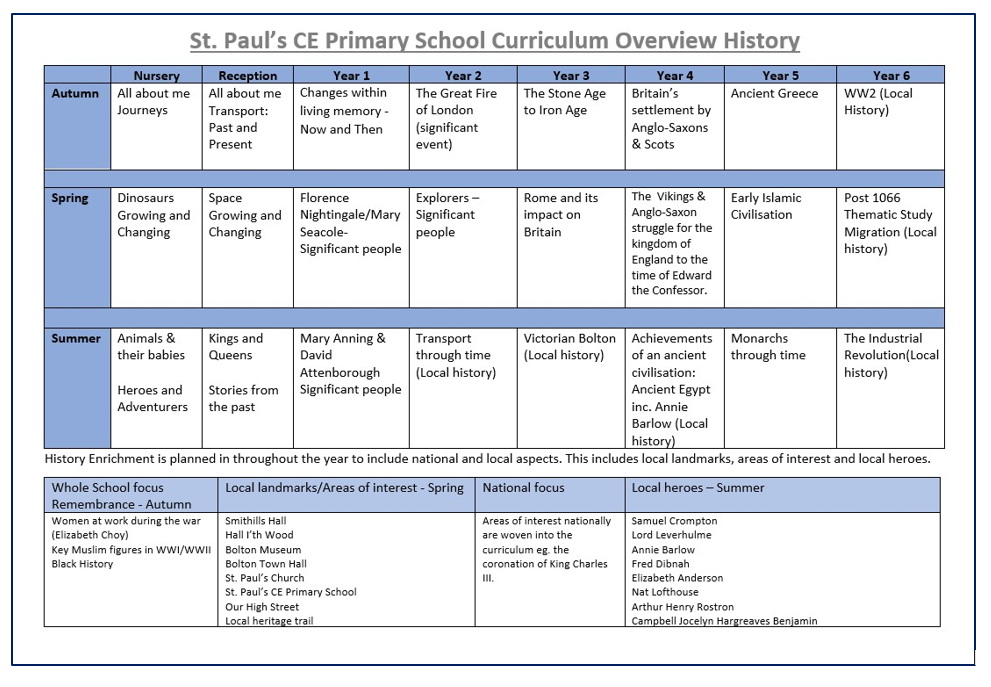
History at St Paul's
Mapping of Key Knowledge
The sequence of learning has been mapped out across the history curriculum, with clear essential and desirable knowledge identified. The St Paul's Four Pillars are also woven throughout the history curriculum, enabling pupils to think deeply about a particular aspect.
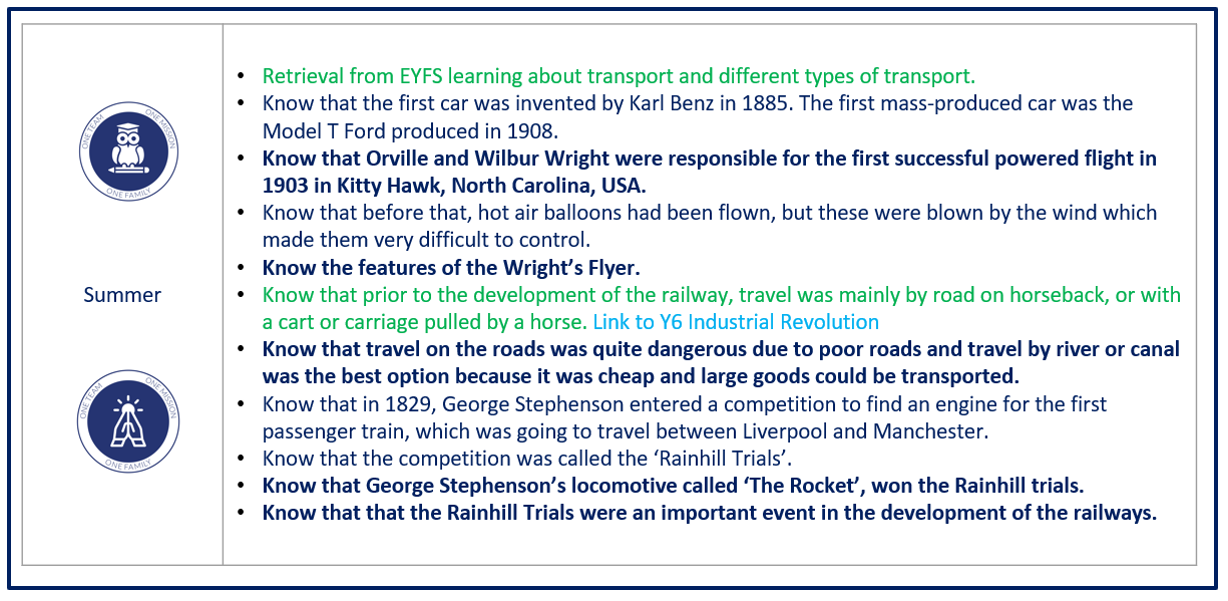
Vital Vocabulary
Vital vocabulary is identified in each unit of learning, which enables our pupils to access a range of tier 2 and tier 3 vocabulary.
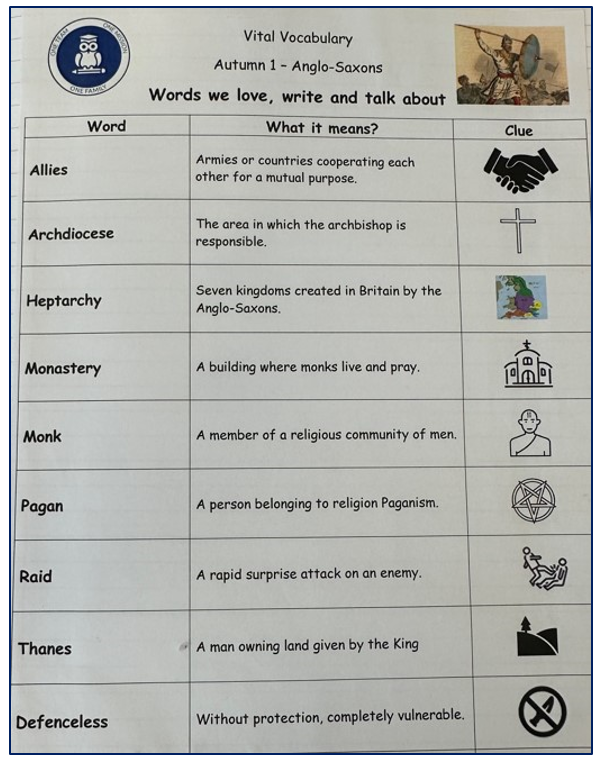
Graphic Organisers
'Combining words and images effectively facilitates learning; their impact is additive.' Pavio (1971)
In history, graphic organisers are used to support learning from EYFS to Year 6. They are an integral part of our learning in history, as they provide a means whereby pupils can organise their ideas, before going on to express their thoughts in speech or writing.
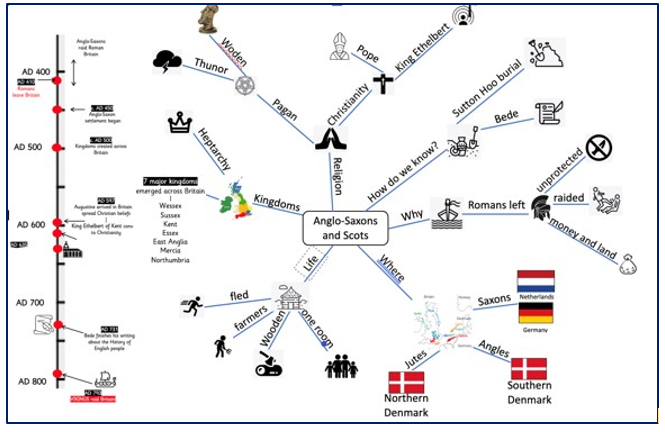
Knowledge Notes
Knowledge notes are used to communicate core knowledge and support pupils to attend to their learning. Knowledge notes also support the learning of key vocabulary within the unit.

Retrieval Practice
'Using your memory, shapes your memory.' Bjork (2012)
Retrieval practice is used in history as a powerful learning tool. It is used to:
- Support later retention and retrieval
- Identify gaps in knowledge
- Organise knowledge more effectively
- Provide valuable feedback to teachers
- Improve metacognition
- Improve transfer of knowledge to new contexts
When designing their lessons, teachers plan in regular opportunities for retrieval practice.
